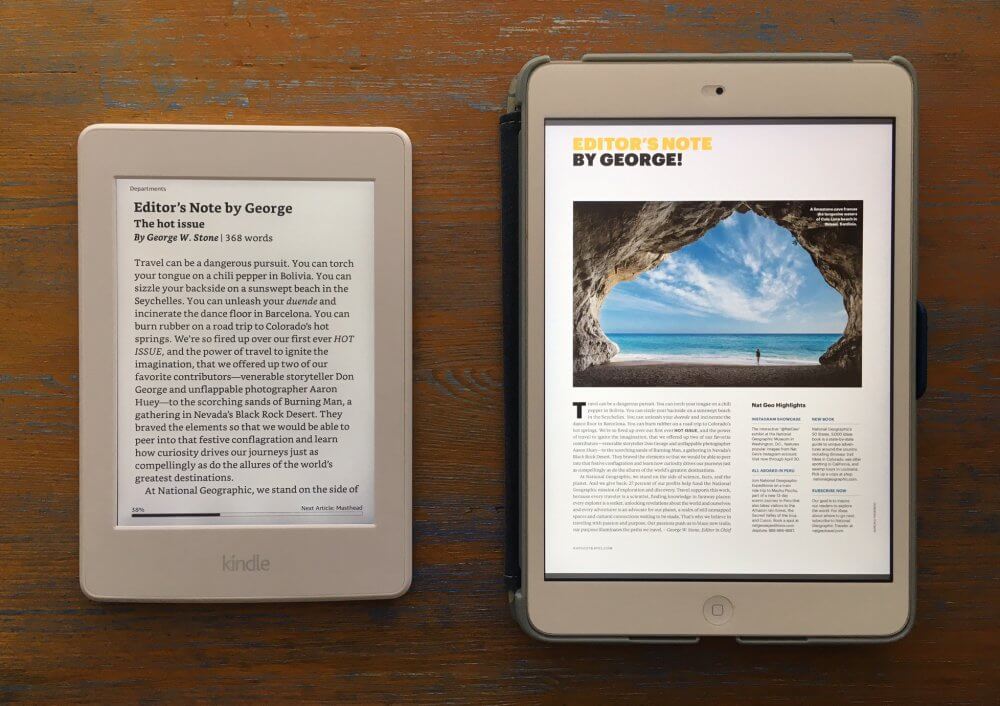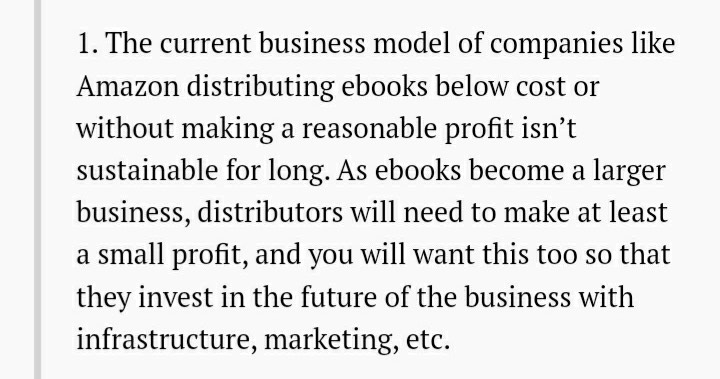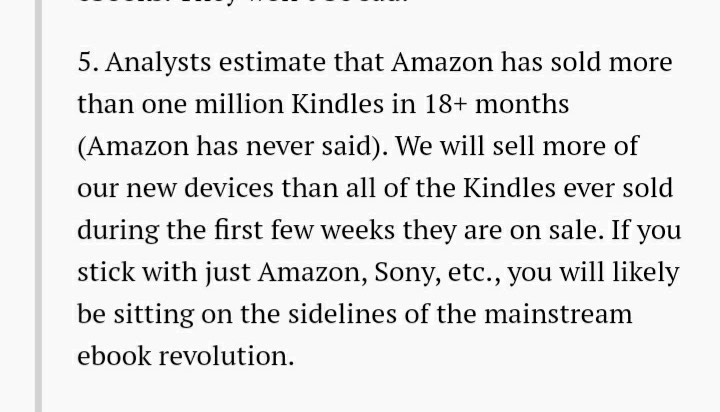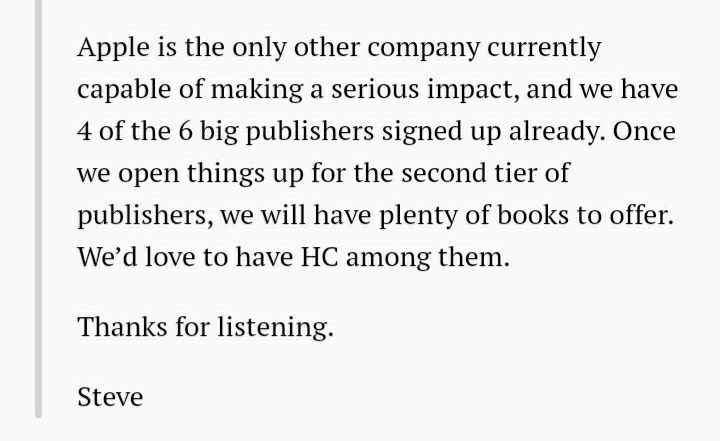In 2010 Amazon was creating an eBook monopoly...
Until Steve Jobs stopped them in their tracks.
This epic story is a masterclass in negotiation: https://abs.twimg.com/emoji/v2/... draggable="false" alt="🧵" title="collectie" aria-label="Emoji: collectie">
https://abs.twimg.com/emoji/v2/... draggable="false" alt="🧵" title="collectie" aria-label="Emoji: collectie">
Until Steve Jobs stopped them in their tracks.
This epic story is a masterclass in negotiation:
By 2010 Amazon had sold 1.5M Kindles and become the leader in the eBook market.
At the same time, Apple was preparing to launch the iPad, where they planned to sell eBooks.
With 120M paying customers on the iTunes platform, Jobs believed they had unmatched distribution.
At the same time, Apple was preparing to launch the iPad, where they planned to sell eBooks.
With 120M paying customers on the iTunes platform, Jobs believed they had unmatched distribution.
Plus the iPad had capabilities far beyond eBooks, while the Kindle didn& #39;t.
With a better product, Jobs thought Apple could do to publishing, what it had done to the music industry.
Dominate it.
But there was one problem...
With a better product, Jobs thought Apple could do to publishing, what it had done to the music industry.
Dominate it.
But there was one problem...
Amazon had a deal with the 6 largest book publishers to wholesale titles at $13/each.
Then they sold them to consumers at $9.99.
A $3 LOSS PER COPY.
The alleged plan was to prevent competition by selling at a loss...
Then use leverage to get better terms with publishers.
Then they sold them to consumers at $9.99.
A $3 LOSS PER COPY.
The alleged plan was to prevent competition by selling at a loss...
Then use leverage to get better terms with publishers.
Jobs viewed Amazon& #39;s sell-below-cost strategy as predatory and was determined to stop it.
He wanted to charge $14.99 per book (including a $4.50 commission for Apple) but knew he couldn& #39;t compete with Amazon selling the same book at $9.99.
So he devised a plan...
He wanted to charge $14.99 per book (including a $4.50 commission for Apple) but knew he couldn& #39;t compete with Amazon selling the same book at $9.99.
So he devised a plan...
In exchange for access to Apple& #39;s 120M paying customers, publishers had to agree to a deal:
Titles would be priced at $12.99 - $14.99 on Apple& #39;s iBooks... and ANY other platform.
If Amazon didn& #39;t want to play ball, they& #39;d lose access to listing the eBooks from the publishers.
Titles would be priced at $12.99 - $14.99 on Apple& #39;s iBooks... and ANY other platform.
If Amazon didn& #39;t want to play ball, they& #39;d lose access to listing the eBooks from the publishers.
Jobs quickly got 4 of the 6 big publishing houses to agree.
Craving his customer base, they were happy to pay the 30% iBooks commission too.
But HarperCollins, the largest publisher, refused to comply.
They were happy with their Amazon deal.
Craving his customer base, they were happy to pay the 30% iBooks commission too.
But HarperCollins, the largest publisher, refused to comply.
They were happy with their Amazon deal.
Then... seemingly out-of-the-blue, HarperCollins agreed to ALL of Apple& #39;s terms.
The deal was finalized on January 26th 2010, only ONE day before the iPad release.
Normally, the brilliant negotiation skills of Steve Jobs are reserved for legend.
The deal was finalized on January 26th 2010, only ONE day before the iPad release.
Normally, the brilliant negotiation skills of Steve Jobs are reserved for legend.
But a 2012 Department of Justice lawsuit against Apple and the publishers (for price fixing) revealed how he got this deal done...
And it only took him TWO emails with HarperCollins execs to finalize.
Here& #39;s the tactics he used with snippets from the ACTUAL emails:
And it only took him TWO emails with HarperCollins execs to finalize.
Here& #39;s the tactics he used with snippets from the ACTUAL emails:
Before diving into Jobs& #39; dismantling of HarperCollins, we must understand their objections:
They were concerned about Apple& #39;s high commission, price control across platforms, and standardized pricing (rather than title by title).
So, here& #39;s what Jobs did to get his deal:
They were concerned about Apple& #39;s high commission, price control across platforms, and standardized pricing (rather than title by title).
So, here& #39;s what Jobs did to get his deal:
1. Made it a win-win:
Jobs explained that it& #39;s in HarperCollins& #39; best interest for Apple to make money selling eBooks.
Without a profit, why would any company (Apple or Amazon) continue to do the business with HC in the long run?
Jobs explained that it& #39;s in HarperCollins& #39; best interest for Apple to make money selling eBooks.
Without a profit, why would any company (Apple or Amazon) continue to do the business with HC in the long run?
Jobs masterfully positions his profit as a win for HC and the creators too.
Apple will use their profits to reinvest to improve the eBook experience/ business for their shared customers.
It also subtly casts doubt onto Amazon& #39;s motives -- why would they do it at a loss?
Apple will use their profits to reinvest to improve the eBook experience/ business for their shared customers.
It also subtly casts doubt onto Amazon& #39;s motives -- why would they do it at a loss?
2. Invoke loss aversion:
It took Amazon 18 months to sell 1M+ Kindles -- but Apple will smash that in just weeks.
Since a loss HURTS more than a WIN feels good, Jobs positioned NOT working with Apple as a major loss for HC.
It took Amazon 18 months to sell 1M+ Kindles -- but Apple will smash that in just weeks.
Since a loss HURTS more than a WIN feels good, Jobs positioned NOT working with Apple as a major loss for HC.
HC& #39;s biggest risk was being sidelined for the eBook revolution.
They& #39;d lose their position as the leading publisher in the world.
He used data and social proof (numbers/analyst estimates) to drive his point.
This makes it more meaningful than his word alone.
They& #39;d lose their position as the leading publisher in the world.
He used data and social proof (numbers/analyst estimates) to drive his point.
This makes it more meaningful than his word alone.
3. He created leverage:
Before going after the biggest publisher (HarperCollins) he signed deals with 4 other large publishers.
This plainly shows Apple did not NEED HC, though they& #39;d "love to have them."
Before going after the biggest publisher (HarperCollins) he signed deals with 4 other large publishers.
This plainly shows Apple did not NEED HC, though they& #39;d "love to have them."
Jobs adds another layer by suggesting the second-tier publishers will jump at the opportunity.
This leaves the HC execs asking....
"Will future authors want to publish with HC if we don& #39;t have access to the iBook store?"
The power of leverage/distribution is real!
This leaves the HC execs asking....
"Will future authors want to publish with HC if we don& #39;t have access to the iBook store?"
The power of leverage/distribution is real!
4. Jobs was willing to walk away:
He did not bend to ANY of HarperCollins& #39; demands and even stated he wasn& #39;t willing to build the eBook business without a solid foundation.
He knew with a $9.99 price point there wasn& #39;t enough profit for sustainability.
He did not bend to ANY of HarperCollins& #39; demands and even stated he wasn& #39;t willing to build the eBook business without a solid foundation.
He knew with a $9.99 price point there wasn& #39;t enough profit for sustainability.
In 2016 Apple and the publishers were found guilty of price-fixing and forced to pay over $450M in restitution to consumers.
Apple claimed they were trying to prevent an anti-trust violation (monopoly) by Amazon.
While it may be true, breaking the law is NEVR okay.
Apple claimed they were trying to prevent an anti-trust violation (monopoly) by Amazon.
While it may be true, breaking the law is NEVR okay.
Rather than judge the ethics, this thread aims to highlight the methodical negotiation tactics of business titans.
For entrepreneurs, it shows defining your value prop and positioning it with strength is how to succeed in high-stakes negotiating.
For entrepreneurs, it shows defining your value prop and positioning it with strength is how to succeed in high-stakes negotiating.
If you& #39;d like to learn more about this wild story check out these two articles:
https://qz.com/87184/the-steve-jobs-emails-that-show-how-to-win-a-hard-nosed-negotiation/
https://qz.com/87184/the... href=" https://www.vox.com/culture/2019/12/23/20991659/ebook-amazon-kindle-ereader-department-of-justice-publishing-lawsuit-apple-ipad">https://www.vox.com/culture/2...
https://qz.com/87184/the-steve-jobs-emails-that-show-how-to-win-a-hard-nosed-negotiation/
And if you enjoyed this story and learned something..
Follow @barrettjoneill for content on business & growth.
Please RT the 1st tweet so others can check it out too!
Follow @barrettjoneill for content on business & growth.
Please RT the 1st tweet so others can check it out too!

 Read on Twitter
Read on Twitter " title="In 2010 Amazon was creating an eBook monopoly...Until Steve Jobs stopped them in their tracks. This epic story is a masterclass in negotiation: https://abs.twimg.com/emoji/v2/... draggable="false" alt="🧵" title="collectie" aria-label="Emoji: collectie">" class="img-responsive" style="max-width:100%;"/>
" title="In 2010 Amazon was creating an eBook monopoly...Until Steve Jobs stopped them in their tracks. This epic story is a masterclass in negotiation: https://abs.twimg.com/emoji/v2/... draggable="false" alt="🧵" title="collectie" aria-label="Emoji: collectie">" class="img-responsive" style="max-width:100%;"/>






